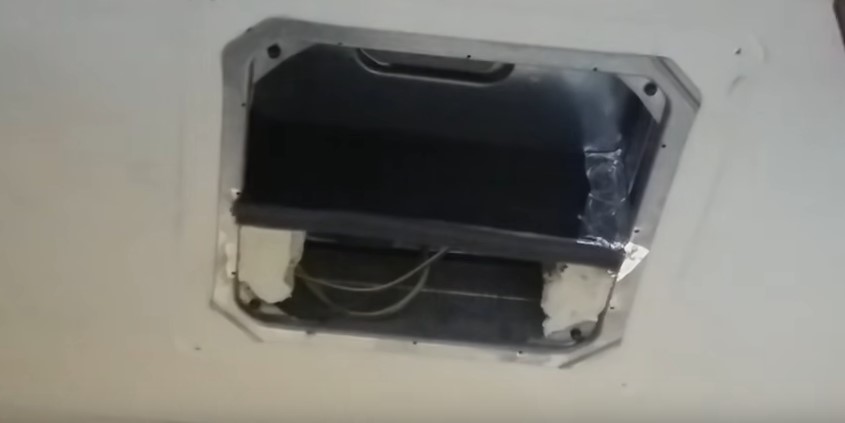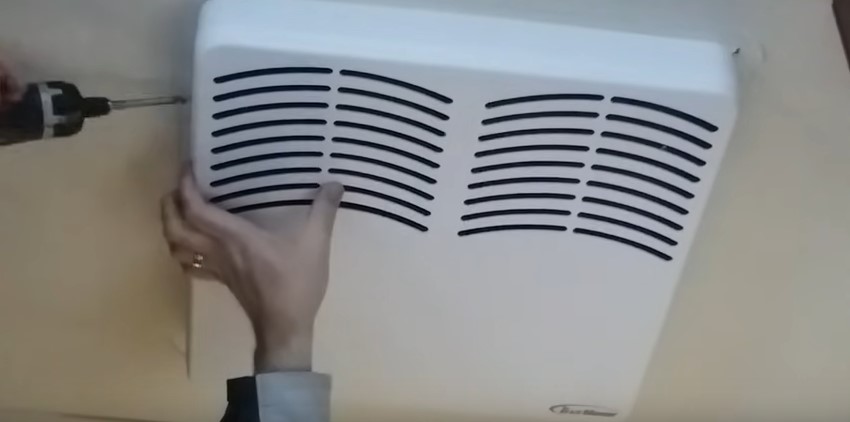Many RV owners force to pick between a cool interior and the sound of fighter planes on the roof. Well, there are a few simple ways how to quiet RV AC and silence your rooftop air conditioner.
So, let’s figure out how to make your RV air conditioner quieter and keep it in good working order, so you can have a nice, yet silent, trip.
Table of Contents
- 1 How to Troubleshoot an RV Air Conditioner
- 2 Check the Rubber Gasket
- 3 Tighten all screws and bolts.
- 4 Consider Buying a New RV Air Conditioning Unit.
- 5 Try Using A Motorhome Air Conditioner Silencer.
- 6 Replace Your Old AC Unit
- 7 Preventative Maintenance to Keep Your RV Air Conditioner Quiet
- 8 Regularly clean the filters, ducts, and internal components.
How to Troubleshoot an RV Air Conditioner

The first step in reducing the noise level produced by your camper’s A/C is to identify any issues.
These simple fixes may frequently make a significant impact on the sound your machine produces. So Begin with these before going on to our more difficult and costly tactics.
Tip: If you have any worries about executing these activities on your own, consider hiring a trained RV mechanic. They understand how these machines function and can assist you in reducing potentially costly blunders. Investing in expert assistance is highly useful for motorhome owners who are unfamiliar with RV air conditioner repair or who do not love spending time on top of their trailers.
Check the Rubber Gasket
Between the air conditioning unit and the van’s roof is a rubber gasket. It’s kept in place by three or four bolts. After numerous rough journeys, these components might become loose or damaged over time.
Check the rubber gasket for evidence of wear and tear. Heat and sun cause the rubber to harden and become brittle. Tough rubber does not absorb energy or vibrations, as well as soft, new rubber, does.
Replace the worn gasket and carefully tighten all bolts. The noise reduction made achievable by this simple switch will most likely amaze you.
Tighten all screws and bolts.
A number of nuts, bolts, and screws inside the air conditioning machine might shake and become loose. These materials and connections must be checked and tightened to prevent rattling or failure.
A description of the interior of your RV air conditioner will be included in the user handbook. When working on the equipment without the assistance of an expert, always refer to this. That way, you’ll avoid causing any harm to the item and perhaps voiding any remaining warranty.
Consider Buying a New RV Air Conditioning Unit.
If the gasket inside your air conditioner is like new and all of the bolts are snug, a more costly repair may be required. But don’t be alarmed. For any budget, there are air conditioners and air conditioner silencers available.
Try Using A Motorhome Air Conditioner Silencer.

The motor and compressor within older air conditioning units may be somewhat noisy at times. Sound-dampening technology such as those obtainable now was not available in previous decades. An A/C silencer unit is a low-cost method to benefit from these improvements without having to replace your complete air conditioning system.
Silencers separate the duct system and attenuate noise at its source by using a cotton liner. Quality A/C silencers may lower noise levels by up to ten decibels—a significant reduction in loudness when you’re in a compact room!
Most well-known RV manufacturers produce a motorhome A/C silencer. Choose one that is appropriate for your specific unit, otherwise, it may not be as effective as it should be.
On a positive note, this form of soundproofing takes less than 15 minutes to install and requires no work. See how to install the WackO RV Air Conditioner Silencer in this video.
Replace Your Old AC Unit
You will ultimately need to replace your camper air conditioner with a more accurate method. Even the noisiest new air conditioner is likely to be quieter than your older model. This is sometimes the finest solution for ensuring maximum comfort within your RV.
More powerful motors are now smaller and more efficient thanks to advances in technology. These developments, along with the most recent sound-dampening technology, have resulted in nearly quiet devices.
The Dometic Brisk II Rooftop Air Conditioner is one of the most popular RV air conditioners on the market today, with a 15% improvement in airflow and a 19% weight reduction over prior versions. It also comes with a 2-year warranty.
The Dometic Brisk II Rooftop Air Conditioner is only one of a few units that made our top RV air conditioner list.
Preventative Maintenance to Keep Your RV Air Conditioner Quiet
Whether you locate and fix the problem with your AC unit by tightening and replacing the gaskets and nuts, or you opt to update your system, preventative maintenance is essential for preventing the noise from recurring.
You must clean your air conditioner and its components on a regular basis, just like you would any other portion of your RV. Good maintenance systems allow you to address any concerns that may occur before they become long-term and irreparable.
Regularly clean the filters, ducts, and internal components.
Your air conditioner filters in the outside air. Pollen, dust, trash, and pollution are all carried by air. These particles have the possibility to clog or harm your unit.
When your air conditioner is unable to move the volume of air required to cool the RV, two things occur:
The motor must work harder and, as a result, be louder.
As a consequence of this accumulation, your filters or ducts may begin to rattle.
It is necessary to clean your RV air conditioner filter after every two weeks of air conditioner use to avoid problems. Check the ducts for any bottlenecks and fractures in the seals that might cause loud vibrations or air conditioner leaks when it rains.
Annually, have a certified technician service your air conditioner.
Even the most diligent RV owner may overlook concerns that they lack the skills to detect.
As a result, frequent specialist checkups will significantly extend the longevity of your RV and its components. This minor outlay will save you money in the long term.
We recommend that you get your air conditioner tested once a year. The best periods are in the spring, during the de-winterization process and before you start using your RV on a regular basis, or in the autumn before you winterize your RV. Avoid peak hours during summer travel whenever possible.
